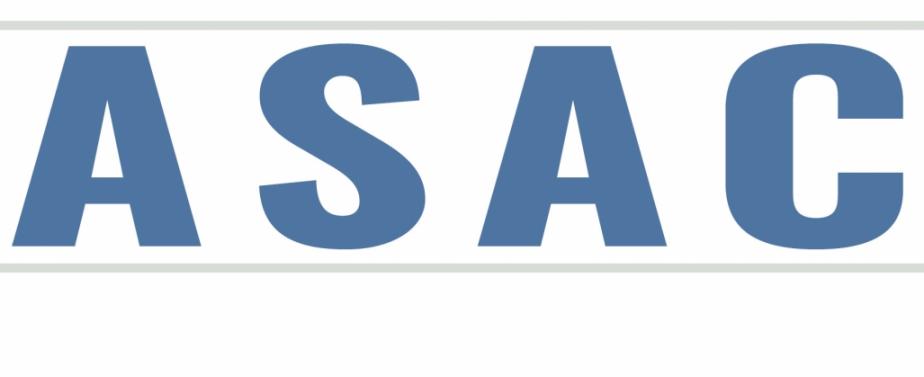Timeless Principles for Working with People
06/21/2024
As consultants we all have those clients, their family members or employees that we struggle to work with in our regular interactions. The internet is full of thousands of advice columns, blogs, podcasts and short e-books with the author’s “5 Secrets to Working with People” or “10 Proven Strategies to Improve Communication” or other content that offers suggestions on how advisors can be more effective. Most offer good advice, but often have similar content and rarely offer anything that is actually new and innovative.
There’s a reason for this. There are core principles about working with people that when understood, embraced and implemented, will establish a good foundation for relationships that people want to be a part of for a long time.
This is important advice for new consultants, but experienced consultants can benefit from these reminders as well. Let’s look at a few of these core principles.
Address Problems Quickly
Issues that need to be addressed almost always get worse the longer they are postponed. Those who must deal with the issue—or the individual—on a daily basis see the problem getting worse by the day, and the longer it goes on, the less they trust their leadership and the leader’s advisors. This erodes relationships and keeps them from becoming fully engaged in their work, and in the advice you are providing in all areas.
If you are working with a manager or leader who only seems to have big problems to address, you are dealing with a person who does not address problems when they are small. Coach them on recognizing these small problems at their genesis, and help them build the competence and self-confidence to address them in the moment.
Hold People Accountable
As an advisor, we can only do our part to ensure they know what they need to do, when it needs to be completed, and the importance of the activity. We can’t do it all for them.
When providing clear advice and the action steps needed to achieve the agreed upon goals, we also need to establish accountability for each person to complete their part of the activity. Some of that accountability can be provided by others in the business. In some cases, we need to personally hold them accountable as well, which can be done through progress reports, follow-up calls or e-mails, or other regular contacts that everyone agrees to accept. This accountability helps to keep the process on track, allows everyone to see progress at the agreed upon pace, and ensures that those who tend to procrastinate are not holding up those who are more ambitious.
Keep in mind that the most difficult environment to establish and maintain accountability is the family business. It may be hard at first to implement these strategies and expectations, but once in place, everyone appreciates the fairness and regular progress that will result.
Use Appropriate Body Language
Our brains spend more time reading the body language of those with whom we are communicating than it spends listening to the words or the tonality of the conversation. These are all important, but our body language can make or break our training, coaching, or any other crucial conversation.
In one family business, they had to separate one of their brothers from the rest of the staff purely due to his inappropriate and aggressive body language. Everyone in the business could tell what he was thinking—which was always critical and condescending—just by how he walked toward someone. The employees were on edge throughout the day, and all efforts to coach this brother about his attitude and inappropriate behavior failed, leaving a complete separation and no-contact agreement as the only option.
This is an extreme example, yet it emphasizes the power of body language in any conversation. We must be deliberate to choose the appropriate facial expression, hand gestures, posture and eye contact for the situation if we are going to develop friendly, sincere, positive and engaging relationships with our clients and their people.
***********************************
This article is the opinion and perspective of the author and may or may not be consistent with those of other ASAC Members. ASAC as an organization does not advocate opinions or positions on issues.
= = = = =
Don Tyler
ASAC Board Member
Tyler & Associates
As consultants we all have those clients, their family members or employees that we struggle to work with in our regular interactions. The internet is full of thousands of advice columns, blogs, podcasts and short e-books with the author’s “5 Secrets to Working with People” or “10 Proven Strategies to Improve Communication” or other content that offers suggestions on how advisors can be more effective. Most offer good advice, but often have similar content and rarely offer anything that is actually new and innovative.
There’s a reason for this. There are core principles about working with people that when understood, embraced and implemented, will establish a good foundation for relationships that people want to be a part of for a long time.
This is important advice for new consultants, but experienced consultants can benefit from these reminders as well. Let’s look at a few of these core principles.
Address Problems Quickly
Issues that need to be addressed almost always get worse the longer they are postponed. Those who must deal with the issue—or the individual—on a daily basis see the problem getting worse by the day, and the longer it goes on, the less they trust their leadership and the leader’s advisors. This erodes relationships and keeps them from becoming fully engaged in their work, and in the advice you are providing in all areas.
If you are working with a manager or leader who only seems to have big problems to address, you are dealing with a person who does not address problems when they are small. Coach them on recognizing these small problems at their genesis, and help them build the competence and self-confidence to address them in the moment.
Hold People Accountable
As an advisor, we can only do our part to ensure they know what they need to do, when it needs to be completed, and the importance of the activity. We can’t do it all for them.
When providing clear advice and the action steps needed to achieve the agreed upon goals, we also need to establish accountability for each person to complete their part of the activity. Some of that accountability can be provided by others in the business. In some cases, we need to personally hold them accountable as well, which can be done through progress reports, follow-up calls or e-mails, or other regular contacts that everyone agrees to accept. This accountability helps to keep the process on track, allows everyone to see progress at the agreed upon pace, and ensures that those who tend to procrastinate are not holding up those who are more ambitious.
Keep in mind that the most difficult environment to establish and maintain accountability is the family business. It may be hard at first to implement these strategies and expectations, but once in place, everyone appreciates the fairness and regular progress that will result.
Use Appropriate Body Language
Our brains spend more time reading the body language of those with whom we are communicating than it spends listening to the words or the tonality of the conversation. These are all important, but our body language can make or break our training, coaching, or any other crucial conversation.
In one family business, they had to separate one of their brothers from the rest of the staff purely due to his inappropriate and aggressive body language. Everyone in the business could tell what he was thinking—which was always critical and condescending—just by how he walked toward someone. The employees were on edge throughout the day, and all efforts to coach this brother about his attitude and inappropriate behavior failed, leaving a complete separation and no-contact agreement as the only option.
This is an extreme example, yet it emphasizes the power of body language in any conversation. We must be deliberate to choose the appropriate facial expression, hand gestures, posture and eye contact for the situation if we are going to develop friendly, sincere, positive and engaging relationships with our clients and their people.
***********************************
This article is the opinion and perspective of the author and may or may not be consistent with those of other ASAC Members. ASAC as an organization does not advocate opinions or positions on issues.
= = = = =
Don Tyler
ASAC Board Member
Tyler & Associates
Post a new comment







